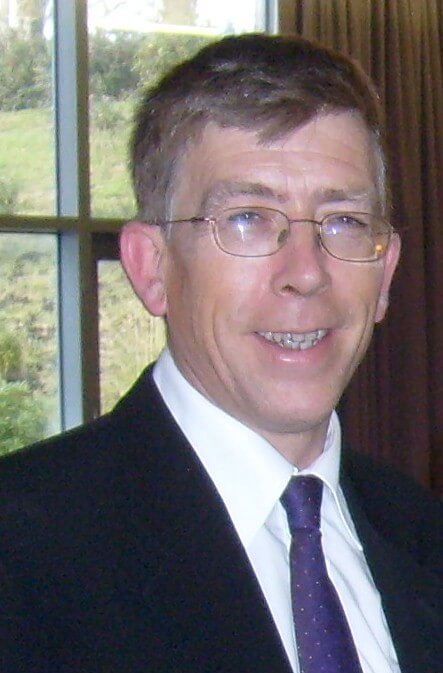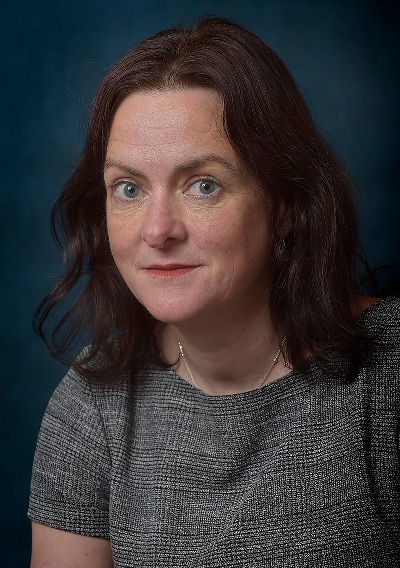

The three guiding principles of the Assisted Decision Making (Capacity) Act were a presumption of capacity unless the contrary was shown, a person was not considered unable to make a decision unless all relevant steps had been taken, without success, to help him or her to do so and making an unwise decision was not indicative of being unable to make a decision, Prof Shaun O’Keeffe , Co-Chair HSE ADM Implementation Steering Group and Co-Chair HSE National Consent Policy, told a HMI East Regional Seminar.
Prof. O’Keeffe, who is a Consultant Geriatrician at University Hospital, Galway, said the Act also provided for the establishment of a Decision Support Service, a statutory basis for Advance Healthcare Directives (living wills) and the abolition of the Wardship system and its replacement by a three tier hierarchy. There would also be Decision-Making Assistants, Co-Decision Makers and Decision-Making Representatives.
The Decision -Making Assistant would help access and explain information , but the person would still make the decision.
The Co-Decision Maker would be appointed by the person and make specified decisions jointly with the person.
The Decision-Making Representative was the last resort, was court-appointed and would make specified decisions for the person as provided in a (circuit) court order.
Prof. O’Keeffe said these options were to support the person – they were not mandatory interventions.
If capacity was lacking, there was no need for an intervention unless it was necessary – it was not a case that if incapacity was found, something must be done. If there was an intervention, it should be the least restrictive intervention. In so far as was practicable this intervention should permit, encourage and facilitate the person to participate, give effect to the past and present will and preferences of the person, take into account the beliefs and values of the relevant person, consult anyone named by the person and act in good faith and for the benefit of the person.
Prof. O’Keeffe said the general principles of the ADM(C) Act were very important, but not that new.
The Advance Directives were somewhat important and somewhat new. The remainder were mainly new and not that important for many.
“Some people are worried that the Act will result in a frenzy of capacity assessments, that we must hunt down incapacity, use new tiers of support if we find incapacity, that we will need more staff for all these assessments and people will need special training. The functional approach to capacity already applies in common law (Fitzpatrick v K. [2008]) and policy including HSE National Consent Policy and IMC Guidelines and hunting down incapacity is not required under the Act. It is the ADM (Capacity) Act, not the Capacity (ADM) Act – it provides for thought, support and assistance, rather than capacity and there need be no intervention unless necessary. It is not a case that if incapacity is found, something must be done. It provides for new tiers of support which are problem-solving tools, not mandatory interventions, which should not be done unnecessarily.”
Prof. O’Keeffe said there were Codes, webinars and HSE guidance to supplement codes and additional training from DSS for specific groups.
He said no other person such as a family member, “next of kin,” friend or carer and no organisation could give or refuse consent to a health or social care service on behalf of an adult person who lacked capacity to consent unless they had specific legal authority to do so. (HSE Consent Policy 6.3.1). This just stated what was always the legal position and was nothing to do with ADM. Prior to ADM, HSE consent policy was to proceed on ‘best interests’ grounds after discussion with those close to person and if there was no controversy/ disagreement. The realisation that Next of Kin (NOK) “consent” was never a valid concept had been triggering Wardship applications in some specialties and areas if, say, an operation was needed. It was a myth that ADM now meant that family views did not count anymore.
Prof.O’Keeffe said that they should proceed if an intervention was consistent with the will and preference of the person, if it was for the benefit of the person and after considering the views of those close to the person. The three new tiers that replaced wardship were options to support the person, not mandatory interventions and circuit court application for a Decision-Making Representation Order (DMRO) was not mandatory. He said the risks were that anxiety/ misunderstanding of the principles of the Act would lead to unnecessary capacity assessments, requests for legal advice, the last resort of court for DMRO would become the first resort and that different regions/bodies would take different approaches.
“There is nothing in the Act/Codes to prevent staff from doing this BUT it will cause chaos anddelay,” he said.
Looking at mitigating the risks, he said the COVID Vaccine Consent Group had faced many issues related to consent capacity. There were issues with family members not wanting vaccination of relatives in nursing homes, estranged parents disagreeing about child vaccines. A single source of policy/guidance/support for staff was developed. The Group fielded hundreds of queries from HSE/Section 38 & 39 agencies with next to no capacity assessments or recourse to legal advice or courts.
The HSE ADM Transitional Oversight Group was modelled on the vaccine consent group. It would try to prevent different regions/bodies taking different approaches, seeking legal advice, going to court and clogging up the courts unnecessarily and would keep track of court cases and judgements that would arise over time.
Prof. O’Keeffe then gave the answers to some questions concerns re AHDs:
- Does there have to be medical/legal input to make an AHD? No – BUT the guide for the public will recommend seeking advice from a doctor.
- Must the AHD be reviewed after a certain time? No – BUT guidance will recommend reviewing as life circumstances change.
- Will there be a standard form? Yes – BUT not a single ‘mandatory’ form.
- What if a professional disagrees with a refusal of treatment? Failure to comply with a valid and applicable AHD poses potential civil and criminal liability. A conscientious objection “cannot lead to the restriction of the rights and freedoms of another person” (ECHR).
- Will there be a searchable register of AHDs? Eventually – BUT not at the start
- What if I didn’t know there was one or it can’t be found in an emergency”? No liability if you are unaware of the existence and contents at the time of treatment. The onus is on the directive maker to disseminate and tell others of their AHD.
He said that challenges for healthcare system included:
- Asking about AHDs on admission
- Recording existence and detail of an AHD
- Communication between staff about an AHD
Healthcare institutions which said their DNAR policy was that decisions must be recorded on Form X – until then an AHD refusing CPR doesn’t matter,” were mistaken. The AHD was a legal document.
“Your DNAR policy adjusts to AHDs – not the other way around.”
This did not mean that all DNAR decisions needed an AHD to be made. AHDs did not replace or invalidate ‘ordinary’ advance care planning – they were complementary approaches to end of life planning.
Prof. O’Keeffe said that good clinical practice in most cases would look the same before and after ADM. There would be no support arrangements in place immediately – they would gradually arise over time. There would be few AHDs immediately.
The meeting was chaired by Dr. Sinead Reynolds, Head of Service for Quality, Safety and Service Improvement at the HSE.
The meeting was sponsored by GSK.

